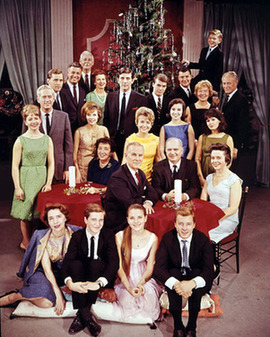“肥皂剧”这个说法好像在中国流传也有好多年了,不过其来由为何却少人谈论。小编曾经臆想:难道是因为这些连续剧的集数像肥皂泡那么多,所以才叫“肥皂剧”的吗?

A soap opera, sometimes called "soap" for short, is an ongoing, episodic work of dramatic fiction presented in serial format on television or radio. The name soap opera stems from the original dramatic serials broadcast on radio that had soap manufacturers such as Procter & Gamble as sponsors and producers. These early radio series were broadcast in weekday daytime slots when most listeners would be housewives; thus the shows were aimed at and consumed by a predominantly female audience.
肥皂剧(soap opera,有时简称soap)指在广播或电视中连续长期播放、情节虚构的故事剧集。之所以叫“肥皂剧”,是因为这些剧集播放之初都是由宝洁等洗涤用品生产商赞助或制作的。当时,这些连续剧都是在工作日白天时段播出的,大部分听众都是家庭妇女。所以,肥皂剧的受众主要为女性观众。
A crucial element that defines soap opera is the open-ended nature of the narrative, with stories spanning several episodes. Each episode ends with a promise that the storyline is to be continued in another episode.
肥皂剧最主要的一个特征就是故事情节进展的开放性,一部剧通常有好多集。每一集结束的时候都会为下一集的故事发展留下空间。
相关阅读
(中国日报网英语点津 Helen 编辑)